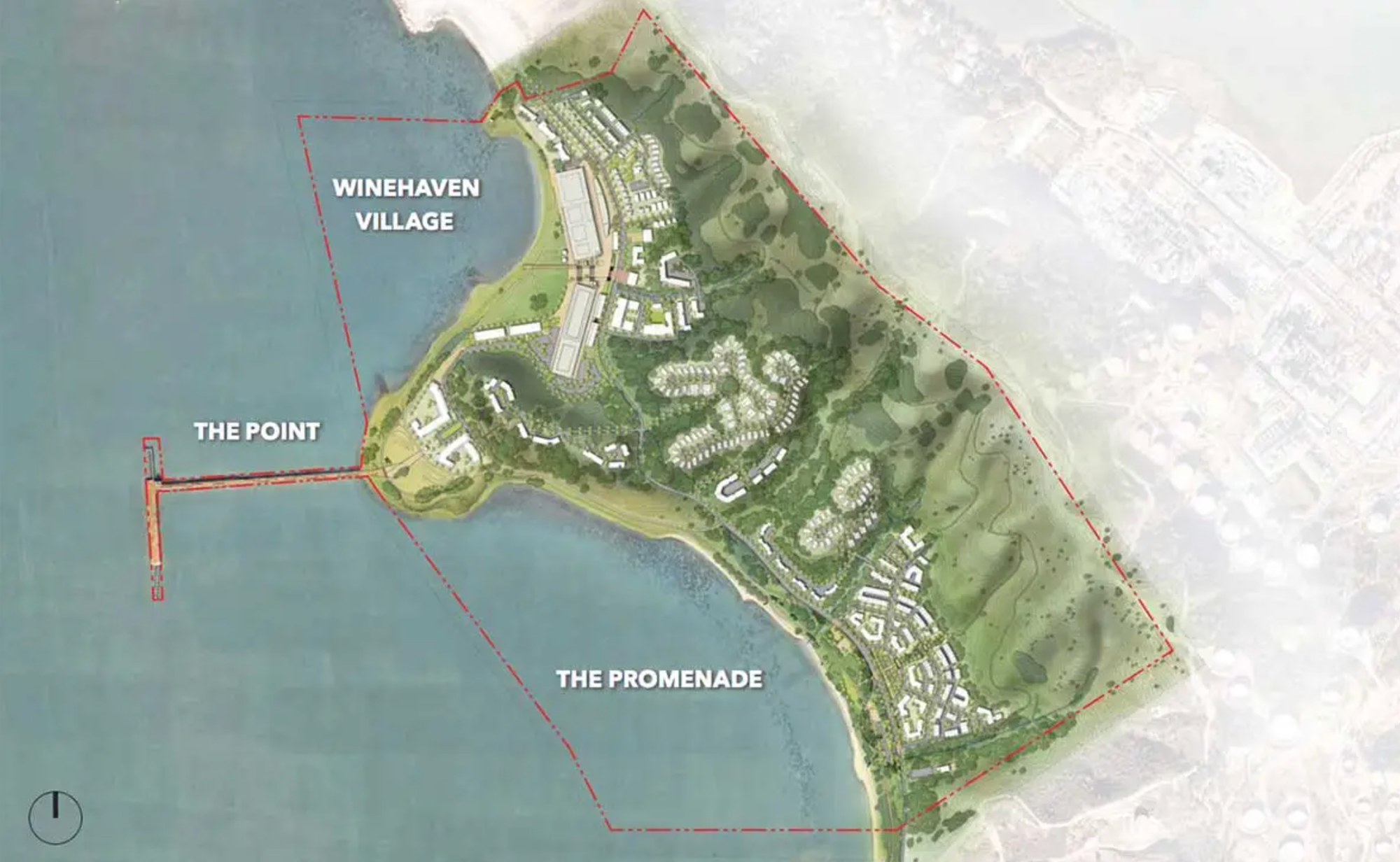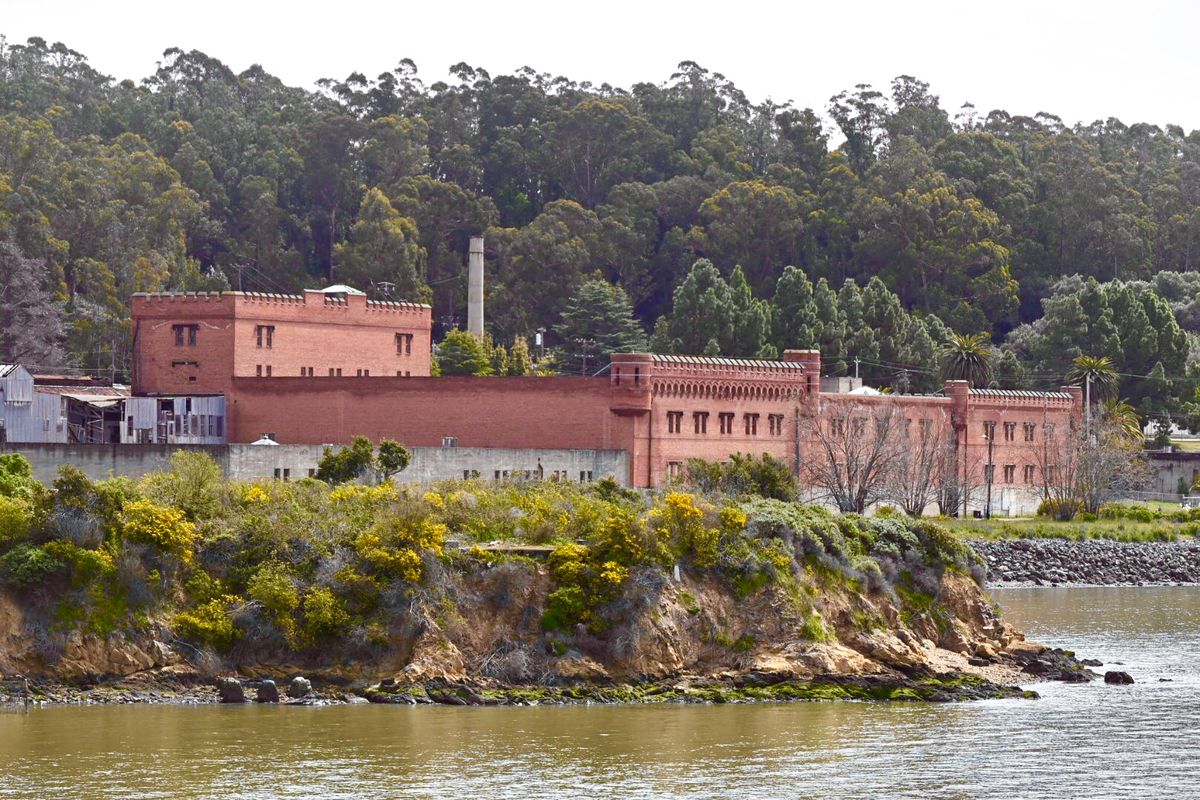

After years of legal wrangling, a court has found that the environmental impact report for the proposed development of Point Molate was flawed, which environmental groups say clears the way for creating a new shoreline regional park.
The Point Molate Mixed Use Project envisioned a mixed-use community comprising open space, adaptive reuse of the historic cottages and Winehaven buildings, and 1,260 newly constructed residential units.
The units represent over 37 percent of the approved units listed in the recently certified housing element.

The Sierra Club, SPRAWLDEF, Citizens for Eastshore Parks, and the Point Molate Alliance filed a lawsuit against the City of Richmond, alleging that the city failed to conduct an adequate environmental review of the proposed housing development at Point Molate.
The California Courts of Appeal ruled on November 27 that the subsequent environmental impact report for the project failed to consider tribal cultural resources, emergency evacuation impacts, and wildfire risks.
Citizens for East Shore Parks attorney Robert Cheasty called the ruling a “complete victory” during a recent Speaking UP for Point Molate video series.
“What our case did was it removed the environmental impact report and it removed any of the approvals that happened,” Cheasty said. “So whatever environmental impact report that Winehaven LLC had and whatever project approval they had are all gone. They own the rights to nothing.”
Cheasty said the East Bay Regional Park District wants to obtain Point Molate to create a new regional park. The purchase would involve negotiations with the Guidiville Rancheria of California and developer Upstream Point Molate LLC, who exercised their right to purchase the developable lots for $400 last year.
 East Bay TimesKatie Lauer
East Bay TimesKatie Lauer
Cheasty said Citizens for East Shore Parks wants to see a network of parks and open space along the east bay shoreline so that there would be a continuous shoreline experience from Crockett to San Jose.
“I do know that there have been serious conversations among the park district, Guidiville, the city, and even our larger organizations and other interests that brought these lawsuits,” Cheasty said.
The numbers have not been thoroughly threshed out, but Cheasty said he thinks there is a path forward.
“We just need to inch our way there and come with a sufficient amount of money. The state budget procured $36 million for the acquisition and development of a park out at Point Molate, so there is money to do this,” he said.
Ownership
Guidiville and Upstream received the developable parcels with the understanding that they would have five years to sell them and split the proceeds with the city.
“By sell, I mean they would have to come to the city with a development proposal. Because their other approvals have all been basically rescinded by the city, they’re pretty much starting from scratch. They have to be able to show the financial strength to do whatever proposal they have,” Cheasty said. “They’d have to go back and get an EIR approved, and they’d have to come and convince this city council that the proposal was meritorious and worthy.”
Almost a year and a half has passed. Guidiville and Upstream have roughly three years and seven or eight months to market the property. If they fail to do so, it goes back to the city.
“I don’t want to step past the things I’ve picked up in confidence. I want to be careful about what I say, but I think there have been diligent efforts, discussions, and negotiations about moving forward with a settlement plan,” Cheasty said.
Cheasty stated that while lots of numbers have been thrown around for the purchase of Guidiville and Upstream interests, an agreed-upon price of $45 million between the city and Suncal might be the right amount.
“I think that the $45 million will turn out to be a benchmark for what the value is or could be or should be. Maybe less now that we’ve got this judgment because now there are no approvals,” Cheasty said.

Winehaven Village
Cheasty said everybody agrees that the Winehaven Village should be revitalized and put to good use and purpose, but there should be a planning process in Richmond that allows for that to happen.
Winehaven was built at Point Molate by the California Wine Association after the 1906 San Francisco Earthquake destroyed many of its San Francisco facilities. The association is credited with elevating California’s winemaking reputation and would dominate wine production in California until Prohibition.
The cottages, once home to workers at what was once the world’s largest winery, are located in a National Register Historic District. They were constructed between 1907 and 1919 and later housed military families when the Navy acquired Point Molate for a fuel depot during World War II. The base was closed in 1995 under the U.S. Department of Defense Base Realignment and Closure Act. In 2003, ownership was transferred to the city.
A nonprofit formed by two former Richmond mayors filed a lawsuit in a bid to save deteriorating historic Winehaven structures at Point Molate.
 Grandview IndependentSoren Hemmila
Grandview IndependentSoren Hemmila
“Because of the lawsuits, particularly the Guidiville and Upstream lawsuit, the city felt they couldn’t go through a process to do any real serious planning. So that never happened, which is really a shame for a city like Richmond, which is a vibrant city with a lot of incredibly creative people,” Cheasty said. “So where we are now is we have an area that is perfect for a park and an area that calls out for some kind of creative development in the Winehaven Village.”
Not everyone at the speaker series spoke in favor of saving the Winehaven buildings.
Part of the problem of moving toward a resolution is an illusion that Winehaven can be turned into a successful development and cover renovation costs, said Jeff Kilbreth.
“I honestly suspect that the best thing that could happen would be if we bulldozed Winehaven and made it all a park. Call me crazy, but I actually think that it’s so deteriorated and so expensive to make that place work as any kind of normal development,” Kilbreth said.
Kilbreth said former Mayor Tom Butt made a misguided backroom deal in selecting Suncal to develop Point Molate, and Butt was committed to Winehaven in a “maniacal way.”
“He also remains unreasonably devoted to this endeavor. He’s fixated on developing it, particularly emphasizing the preservation of Winehaven’s Historic District and keeping the aspiration of revitalizing Winehaven alive,” Kilbreth said. “If the development couldn’t support a nut as expensive as a $6 million a year cost for a fire station. What makes anybody think that any development scenario at Winehaven could support a $400 infrastructure investment.”
In Butt's email newsletter, the former mayor said the Appeal Court found that the EIR was adequate in all but two narrow areas, both of which could have been easily corrected.
“This will substantially diminish the potential value of the 30 percent of Point Molate now owned by Point Molate Futures, LLC (the tribe and Upstream), but it will also potentially increase the value of the Winehaven Legacy, LLC (SunCal) lawsuit against the City – bad news for the City of Richmond,” Butt wrote.
Richmond retains its discretion over what further steps may be taken at Point Molate as long as it complies with the California Environmental Quality Act, wrote Norman La Force in a Sierra Club article.
“While we have not yet achieved our goal of saving Point Molate, we are closer to reaching our vision of a regional park that will provide Richmond with much-needed green space, protect the substantial biodiversity in the area, and create opportunities for sea level rise resilience projects,” La Force wrote.
Become a paid Grandview Supporter to help us deliver more stories about Richmond. Grandview is an independent, journalist-run publication exclusively covering Richmond, CA. Copyright © 2023 Grandview Independent, all rights reserved.
